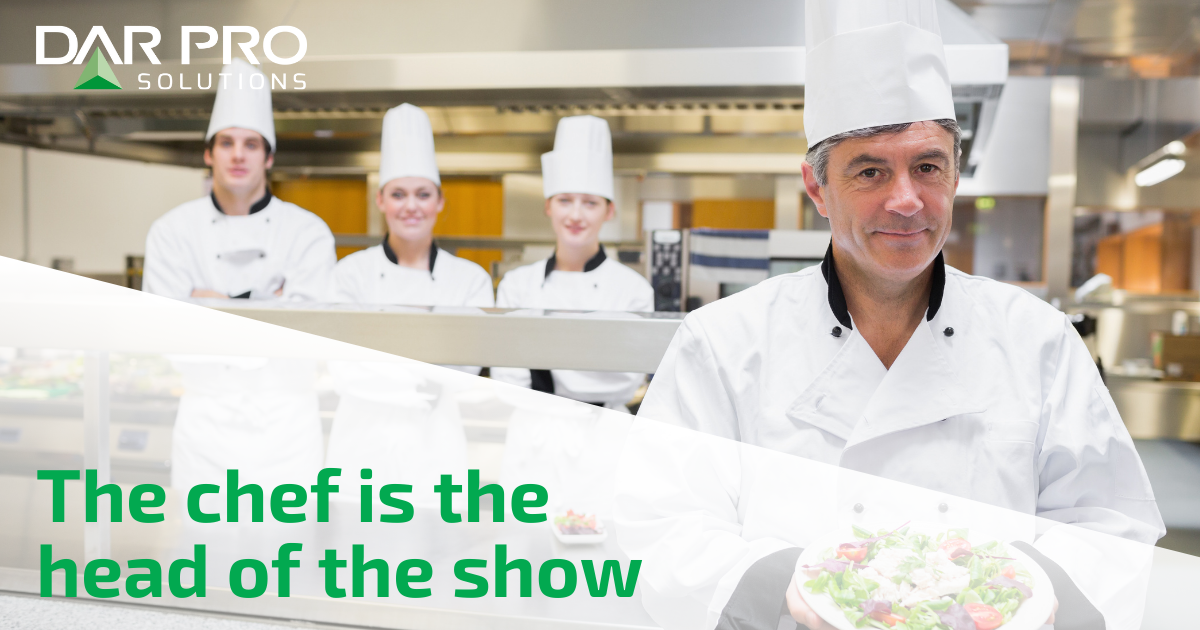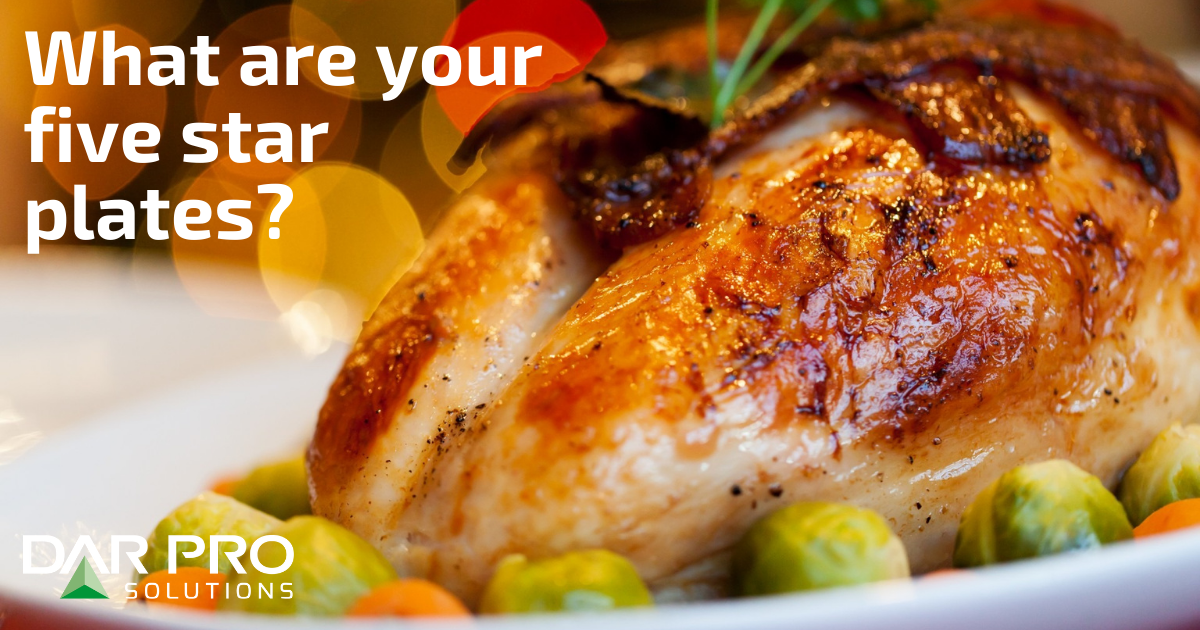What is a five-star restaurant?
In some ways, the way a restaurant qualifies as a five-star restaurant as simple as it sounds. It is based on a rating system that ranks them by quality one through five with five being the best quality. However, there is no single uniform rating system, but rather a handful of different systems. Some rank one through five stars in line with the phrase, but others, like the Michelin star rating system only goes up to three stars. These rating systems have different criteria. For example, the Michelin Star system focuses almost solely on the food in terms of quality and taste while other rating systems account for atmosphere, ambiance and other factors of the dining experience.
While the phrase “five-star restaurant” is sometimes meant literally, it’s generally regarded as a moniker for an upscale restaurant that offers a high-quality dining experience.
Now that we have a definition, what goes into running a five-star restaurant?
A Talented Chef
In upscale dining, the menu and the restaurant as a whole are often a reflection of the chef. The head chef oversees the entire kitchen operation. They are in charge of all kitchen operation. They oversee the work of cooks and kitchen helpers under them and are in charge of ingredients, overseeing the process of making different dishes and often times help create the restaurant's menu.
Hire someone with experience
Think of them as the general manager of the kitchen. They allot time to inventory ordering as well as other necessary supplies. Their end goal is to get high quality food onto the plate and out to the customer in as time-efficient of a manner as possible. It's a difficult job that requires a great deal of skill and hiring one is often a competitive practice. When it comes to fine dining, the chef often makes the restaurant and different restaurants will competitively try to lure away chefs from their current post to take over their kitchen.
Choose a chef with great credentials
Their value to the process is in large part due to the work and training they put in. Most head chefs have some form of specific certification, similar to a college or graduate degree. For example, the Culinary Institute of America offers an array of culinary programs in which you can earn an associate’s, bachelor’s and master’s degree. Similar to college majors, there are different areas of specialization from baking, upscale dining, global cuisines and even training other chefs. The hard work pays off too as restaurants will pay as much as six figures for the services of these prized chefs.
Similar to a quarterback on a football team, your upscale restaurant doesn't have much of a chance without a talented chef.

A Forward-Thinking Menu
The core of fine dining is the food itself, and when it comes to constructing a menu, there are several factors to consider.
Start with the best ingredients
In order to make high-quality food, you need high quality ingredients. Starting and operating a five-star restaurant is no small undertaking. It's an expensive one too, but that is what you signed up for when you started the process. Ordering ingredients is no place to start trying to trim costs and save money. The food makes the experience more so than anything else and is what your customer will remember in the end. Sourcing local ingredients is both an eco-friendly and quality way to go. Partner with a local farm in the area to source your ingredients. The less the inventory has to travel the fresher it will be.
What kind of drinks will your restaurant serve? How extensive will your wine menu be? Outlining a style of cuisine is important when it comes to drinks as well as food. If your restaurant is going to be a wine-heavy one, then looking into a partnership with upscale Vineyards and wine companies is a good way to draw people to your restaurant. If you can get a specialty line of wine in your store that isn't readily available elsewhere, then that is a built-in draw for people to come to your restaurant.

Offer noteworthy specialties
What type of theme will your restaurant have? Are there specific types of food your region of the country is known for? It's important for your menu to have an identity. Know your strengths. You want to be good at producing what you are known for. That is especially important when it comes to fine dining. Some dishes often come well in pairs, whether that is an appetizer paired with an entree, or specialty soup or even a specific type of wine. Having a strategy to your menu will make it more appealing for your customers and ultimately result in a better dining experience.
Deciding whether your menu will be permanent, or rotating is another important aspect. A Prix Fixe menu has dishes that rotate throughout a week or month, which keeps enough change for your customers to want to come back when another dish is available. Some places prefer a more permanent menu. Nightly specials are a great way to supplement menu rotation if you elect to keep your menu set in stone. Outlining a menu with a plan in mind might be the most important aspect of running a five-star restaurant.

A Memorable Guest Experience
You can get good food anywhere. Five-star dining is about the experience in addition to the food. Odds are, a meal at your restaurant is a destination for your customers. Perhaps it's a special occasion like a birthday, reunion or anniversary, or maybe they've saved up for a date night for a while. The point is, if they're going to pay a substantial amount of money for food -- more than they would at a quick service restaurant -- they are paying for the experience as well.
Create an inviting atmosphere
What will your dining room look like? Will there be fine tablecloth and dim lighting with candles on the table? Creating an appeasing aesthetic is a great way to subconsciously enhance the dining experience for your customers. Music is often a nice touch, usually something soothing and low key that serves as a bit of background noise is the way to go. If you go with live music, you'll want to ensure it is not too loud and interferes with casual conversation. Table spacing is another key. You don't want your dining area to feel overly crowded as fine dining is meant to be an intimate experience. Each table should be spaced out enough to where it feels a bit isolated and that your customers feel more like they are the only ones in the restaurant rather than crowded into a noisy dining hall.
There are many options with regard to how to layout your dining room, but you should have a plan in place as you do it.

Recruit knowledgeable, attentive staff
Your wait staff is another key part of the process. Unlike quick service restaurants, waiters and waitresses play much more of a role in the dining experience. They should be well-versed on your menus and specials. Your customers will be looking to them as experts when they need guidance through your menu. An expert-level knowledge of the menu is a must for everyone on your staff before they start interacting with customers. That goes for the cocktail and wine menu as well. Your staff should enhance the dining experience and not hinder it.
A dress code is another thing to consider, not only for your staff but for the guests in general. If you're preparing the finest food on the market, then your staff should be dressed for the occasion. Having a dress code for your patrons as well is a bad move depending on your restaurant environment. Eating a nice meal while dressed nice only adds to the fine dining experience as it makes it feel more like the special event that it is.
Establish a reservation system
A reservation system is another important aspect. It's certainly not a requirement, but choosing to implement one can help manage the traffic in and out of your dining area each night. It can help alleviate the burden on your staff of tending to a number of different tables at one time and make for a more intimate dining experience.
A combination of a talented chef, a delectable menu and a well-trained and attentive staff, your five-star restaurant will offer a memorable experience in all facets.
Once your five-star restaurant is up and running, you can call DAR PRO Solutions to help handle your grease. We service upscale restaurants across the country and remove the hassle of disposing of their used cooking oil. Grease shouldn’t be on the forefront of your day-to-day operations. Don’t let it become a problem by allowing us to dispose of it for you. We turn your used cooking oil into renewable diesel, a cleaner-burning alternative to petroleum that reduces carbon emissions by up to 85 percent per gallon. Not only will our service give you one less thing to worry about, you can improve your brand by knowing you are contributing to a greener future.
Call us 24/7/365 at 855-DAR-PRO1 (855-327-7761).
Contact Sales
For customer service inquiries call our toll free number (855) 327-7761
By submitting this form I agree to the privacy policy including the usage of contact details to contact me for marketing purposes.
11/2/2021
